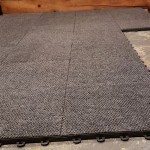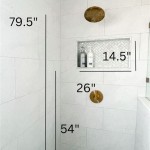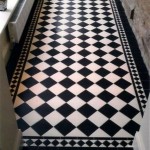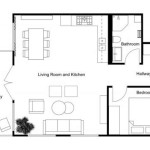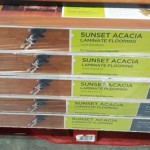Acacia Flooring: Pros And Cons
Acacia flooring has gained popularity as a hardwood flooring option due to its unique aesthetic and perceived durability. Exploring the advantages and disadvantages of acacia flooring is essential for homeowners considering this material for their residential or commercial spaces. This article provides a comprehensive analysis of the pros and cons associated with acacia flooring, enabling informed decision-making.
Pros of Acacia Flooring
Acacia flooring offers several appealing characteristics that contribute to its popularity among homeowners and builders alike. These advantages range from aesthetic appeal to durability and environmental aspects, each playing a role in the overall value proposition of acacia flooring.
Durability and Hardness: One of the most prominent advantages of acacia flooring is its inherent durability. Acacia is a naturally hard wood, often exceeding the hardness ratings of other popular flooring options like oak or maple. The Janka hardness scale, a measure of a wood's resistance to denting and wear, often sees acacia scoring high. This inherent hardness makes acacia flooring resistant to scratches, dents, and other forms of everyday wear and tear. It is a suitable choice for high-traffic areas, households with pets, and families with children who engage in active play. The inherent durability translates to a longer lifespan for the floor, reducing the need for frequent replacements and minimizing long-term costs.
Aesthetic Appeal and Variety: Acacia flooring is celebrated for its distinctive aesthetic. The wood exhibits a wide range of natural color variations, from light golden hues to rich, dark browns, often interwoven with striking grain patterns. This variability contributes to a visually dynamic and unique floor, ensuring that no two acacia floors are exactly alike. The presence of knots and mineral streaks further enhances the rustic and characterful appearance of the wood. This makes acacia flooring a versatile option that can complement a wide range of interior design styles, from contemporary to traditional. It can add warmth and visual interest to otherwise plain spaces. Moreover, acacia flooring is available in various plank sizes and finishes, offering further customization options to match specific design preferences.
Cost-Effectiveness: Compared to some other exotic hardwood flooring choices, acacia flooring often presents a more cost-effective alternative. While still considered a premium flooring option, acacia can be more readily available and easier to source, leading to potentially lower material costs. This allows homeowners to achieve the desired look of a high-end hardwood floor without incurring the significantly higher expenses associated with rarer or more demand-driven wood species. The lower initial cost, coupled with the previously mentioned durability and long lifespan, makes acacia an attractive option for budget-conscious homeowners who are looking for a long-term flooring investment.
Sustainability and Eco-Friendliness: Acacia trees are known for their rapid growth rate, making them a more sustainable resource compared to slower-growing hardwoods. The relative abundance of acacia and its quick regeneration cycle contribute to a reduced environmental impact. Some acacia flooring products are also certified by organizations like the Forest Stewardship Council (FSC), ensuring that the wood is sourced from responsibly managed forests. This certification provides assurance to consumers that the flooring materials are harvested in a sustainable manner, minimizing deforestation and promoting biodiversity. In an increasingly environmentally conscious market, the sustainability aspects of acacia flooring are a significant selling point for many buyers.
Water Resistance: While not entirely waterproof, acacia exhibits a degree of natural water resistance. Its dense grain structure minimizes water penetration, making it less susceptible to warping or damage compared to some other wood species. This property makes acacia flooring a suitable option for kitchens and bathrooms, where occasional spills are likely to occur. Proper sealing and maintenance are still recommended to maximize its water resistance and prevent potential moisture damage over time. Nonetheless, the inherent water resistance of acacia provides an added layer of protection and makes it a more forgiving option for areas prone to dampness.
Cons of Acacia Flooring
Despite the many advantages of acacia flooring, there are also some drawbacks to consider. Potential downsides range from hardness variability to environmental concerns, underscoring the need for careful evaluation before making a purchase decision.
Hardness Variability: While acacia is generally considered a hard wood, the actual hardness can vary significantly depending on the specific acacia species and the region where it was grown. Different acacia species exhibit varying densities and grain structures, resulting in fluctuations in their Janka hardness ratings. It is crucial to inquire about the specific acacia species used in the flooring product and its corresponding hardness rating to ensure it meets the desired level of durability for the intended application. Choosing a reputable supplier who can provide accurate information about the flooring's specifications is essential for avoiding disappointment with its performance.
Potential for Color Variation: The natural color variation that is considered a positive quality by some, can also be a drawback for others. The inherent color inconsistencies can make it challenging to achieve a uniform and consistent look throughout the entire floor. While color sorting and selective installation can help to mitigate this issue, it can also increase the overall cost and time required for the project. Homeowners who prefer a more homogenous and predictable floor appearance may find the color variations of acacia to be undesirable. The suitability of acacia's color variation is largely dependent on individual aesthetic preferences and the desired overall style of the space.
Sourcing and Ethical Concerns: While some acacia is sourced sustainably, there are instances where acacia flooring is harvested from unsustainable or unethical sources. Deforestation, illegal logging, and exploitation of labor are potential concerns associated with the acacia flooring industry. It is important to verify the origin of the acacia wood and to ensure that it is certified by a reputable organization like the FSC. Purchasing flooring from suppliers who prioritize sustainable sourcing practices and ethical labor standards helps to minimize these concerns and support responsible forestry management. Thorough due diligence and a commitment to ethical consumption are crucial for mitigating the potential negative impacts associated with acacia flooring production.
Requires Proper Sealing and Maintenance: Despite its inherent water resistance, acacia flooring is still susceptible to moisture damage if not properly sealed and maintained. Regular cleaning with appropriate hardwood floor cleaners and the application of a protective sealant are necessary to prevent water penetration and maintain the floor's appearance over time. Neglecting proper maintenance can lead to warping, staining, and other forms of damage. Refinishing may be required periodically to restore the floor's original luster and protect it from wear. Homeowners must be prepared to invest the time and effort required to maintain acacia flooring in optimal condition to ensure its longevity and aesthetic appeal.
Potential for Expansion and Contraction: Like all types of hardwood flooring, acacia is susceptible to expansion and contraction in response to changes in humidity and temperature. Significant fluctuations in environmental conditions can cause the wood to swell or shrink, leading to gaps between planks or cupping of the floor surface. It is essential to acclimatize the acacia flooring to the environment in which it will be installed for several days prior to installation to minimize these effects. Maintaining a stable indoor humidity level through the use of humidifiers or dehumidifiers can also help to prevent excessive expansion and contraction. Proper installation techniques, including leaving appropriate expansion gaps around the perimeter of the room, are crucial for accommodating natural wood movement.
Key Considerations When Choosing Acacia Flooring
Navigating the decision-making process for acacia flooring requires careful consideration of several factors. Assessing the specific needs of the space, understanding its unique characteristics, and evaluating personal preferences will contribute to a well-informed choice.
Traffic Levels and Use: The intended use of the space is a primary factor to consider. In high-traffic areas, the durability of acacia is an asset, but ensuring a higher Janka rating will be beneficial. Similarly, the presence of pets or children will impact the choice of finish and underlayment for added protection. In lower-traffic spaces, aesthetic preferences may take precedence over purely practical considerations.
Environmental Conditions: Climate and local environmental conditions play a key role. In areas with high humidity, engineered acacia flooring might be a better choice due to its increased dimensional stability compared to solid acacia. Understanding the local climate and taking preventative measures against excessive moisture or dryness will extend the lifespan of the flooring.
Budget and Long-Term Costs: While acacia flooring may be more cost-effective than some hardwood alternatives, it is essential to factor in the total cost of ownership. This includes installation costs, maintenance expenses, and potential refinishing or repair costs over its lifespan. Comparing the long-term costs of acacia with other flooring options will provide a comprehensive understanding of its value.

Acacia Wood Flooring Guide Benefits Pricing Where To Buy

Acacia Wood Flooring Your Comprehensive Guide Products

Acacia Wood Flooring Your Comprehensive Guide Products

Acacia Wood Flooring Guide Benefits Pricing Where To Buy
What Are The Pros And Cons Of Having Acacia Flooring In My Home Quora

Hand Scraped Natural Acacia Flooring Hardwood Bargains Www Hardwoodbargains Com 75 Lwf Html

Hardwood Vs Engineered Wood Flooring Which Is Best For You Forbes Home

Hand Scraped Moonlight Acacia Flooring Hardwood Bargains Www Hardwoodbargains Com Html

Acacia Wood Flooring Pros Cons Reviews And Pricing

Shop Allen Roth Natural Acacia Handscraped Engineered Hardwood And Accessories Flooring Collection At Lowes Com


